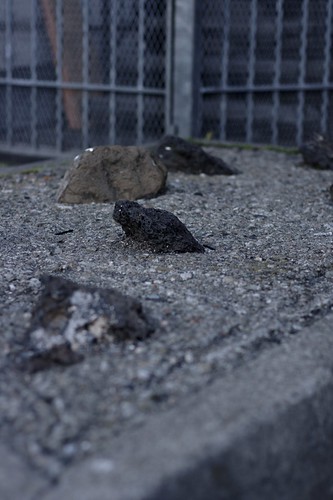 I was listening to Tom Ashbrook's Week in the News from last week and the guests were talking about the recent face-off between President Obama and former Vice President Dick "Dark Side" Cheney. One commenter pointed out that the Republicans, specifically Dick, have set up a very interesting trap for President Obama. They are claiming that by ending the torture of the detainees at Guantanamo and Abu Ghraib, Obama and the Dems are risking the lives of American citizens by increasing the probability of another terrorist attack. This way, in the event that we get attacked, they can point their fingers and say, "HAHAHAAaa we told you so!"
I was listening to Tom Ashbrook's Week in the News from last week and the guests were talking about the recent face-off between President Obama and former Vice President Dick "Dark Side" Cheney. One commenter pointed out that the Republicans, specifically Dick, have set up a very interesting trap for President Obama. They are claiming that by ending the torture of the detainees at Guantanamo and Abu Ghraib, Obama and the Dems are risking the lives of American citizens by increasing the probability of another terrorist attack. This way, in the event that we get attacked, they can point their fingers and say, "HAHAHAAaa we told you so!" The other interesting part of the Republicans defense of their tactics and methods for "Making America Safe" is that we were never attacked again after 911. I have never found this to be a compelling argument because they are using a non-event as proof, which is simply ridiculous child logic. Let's see what else I can come up with using this same logic. How about, I've smoked every day, and I haven't died yet, so clearly cigarettes aren't lethal. Or what about, I've had unprotected sex my whole life and I haven't gotten an STD, clearly STDs are something made up by the media. Try on this one, we've been burning fossil fuels for hundreds of years with no consequences, clearly this does nothing to the environm-oh wait.
Finally, I'd like to point out that Dick is putting himself on the same side of the fence as the terrorists by making this argument. He is setting Obama up for a fall in hopes that something horrible like another attack will occur so that he can point his finger and say, Told ya so!
PS
I'd like to point to Ann Coulter's book Treason: Liberal Treachery from the Cold War to the War on Terrorism and ask her, who are the treasonous ones now? Personally, all I see is a bunch of hardcore right wingers rooting for the bad guys to come and blow us all up so that they can dance around the flames singing, We told you, we told you, we told you, hahahaa! (The image is from the Ghostbusters movie.)






